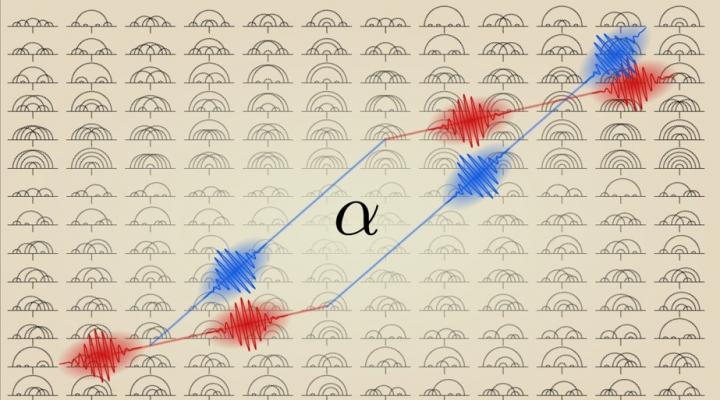
Credit: Pierre Cladé, Saïda Guellati-Khélifa et Tatsumi Aoyama
The validation and application of theories in physics require the measurement of universal values known as fundamental constants. A team of French researchers* has just conducted the most accurate measurement to date of the fine-structure constant, which characterizes the strength of interaction between light and charged elementary particles, such as electrons. This value has just been determined with an accuracy of 11 significant digits; improving the precision of the previous measurement by a factor of 3.** The scientists achieved such precision by enhancing their experimental set-up, in an effort to reduce inaccuracies and to control effects that can create perturbations of the measurement. The experiment involves cold rubidium atoms with a temperature approaching absolute zero. When they absorb photons, these atoms recoil at a velocity that depends on their mass. The highly precise measurement of this phenomenon helps to improve the knowledge of the fine-structure constant. These results, which will appear in Nature on 3 December, open new prospects for testing the Standard Model’s theoretical predictions.*** The use of more accurate constants can help to answer fundamental questions, such as the origin of dark matter in the Universe.
###
*- The physicists are working at the Kastler Brossel Laboratory (CNRS/Sorbonne Université/ENS Paris/Collège de France) and the National Conservatory of Arts and Crafts (CNAM).
**- The new value of the fine-structure constant is α-1= 137.035999206 (with a relative precision of 81 parts-per-trillion).
***- The Standard Model of particle physics studies the elementary components of matter.
Media Contact
Francois Maginiot
[email protected]
Related Journal Article
http://dx.




